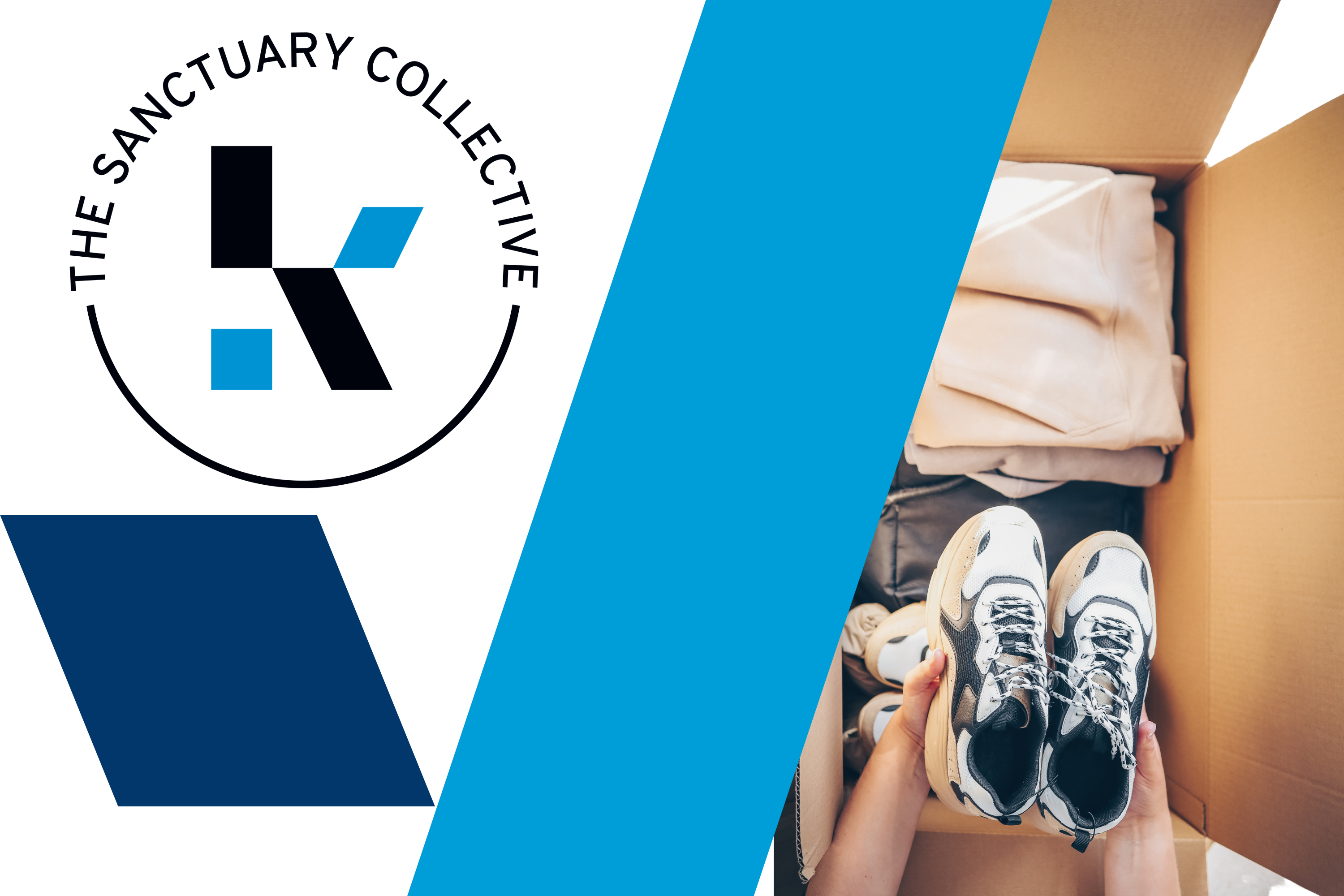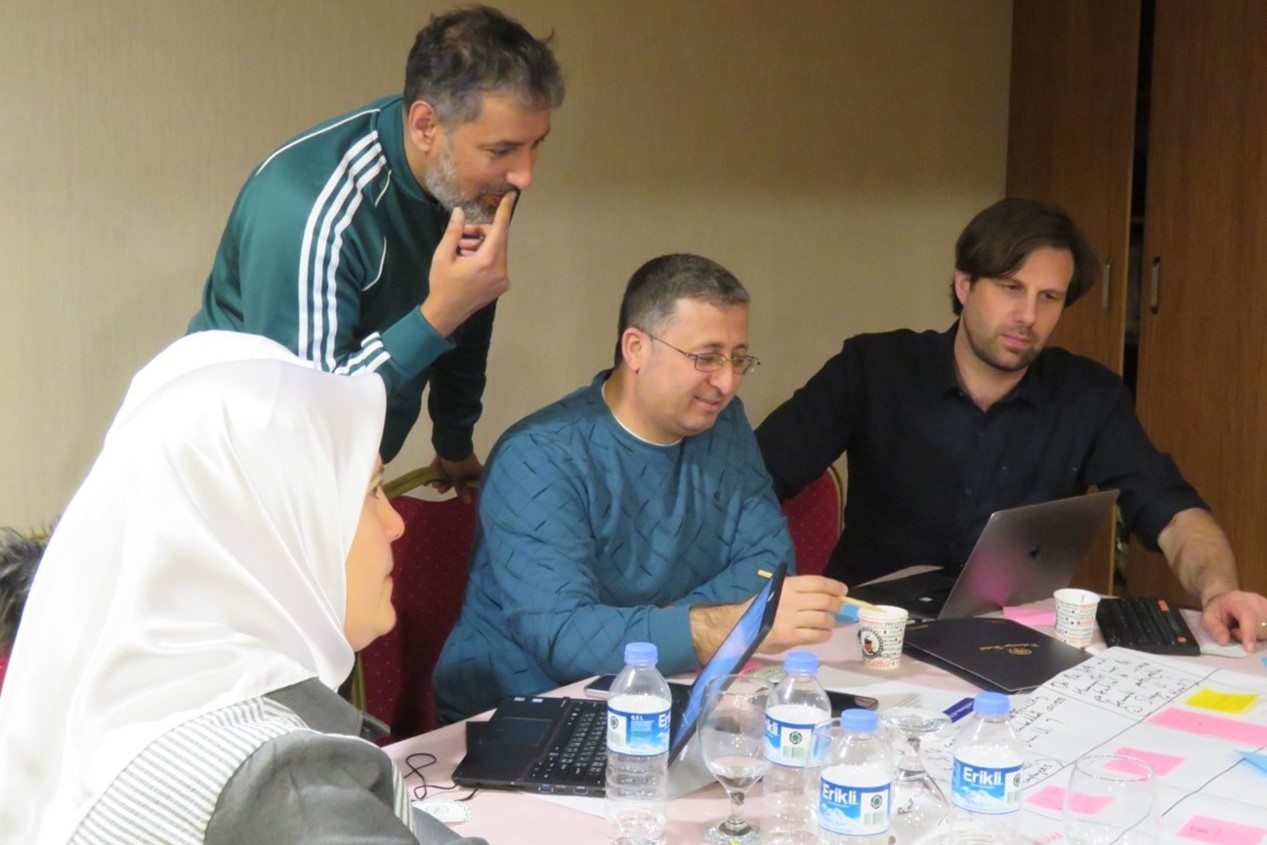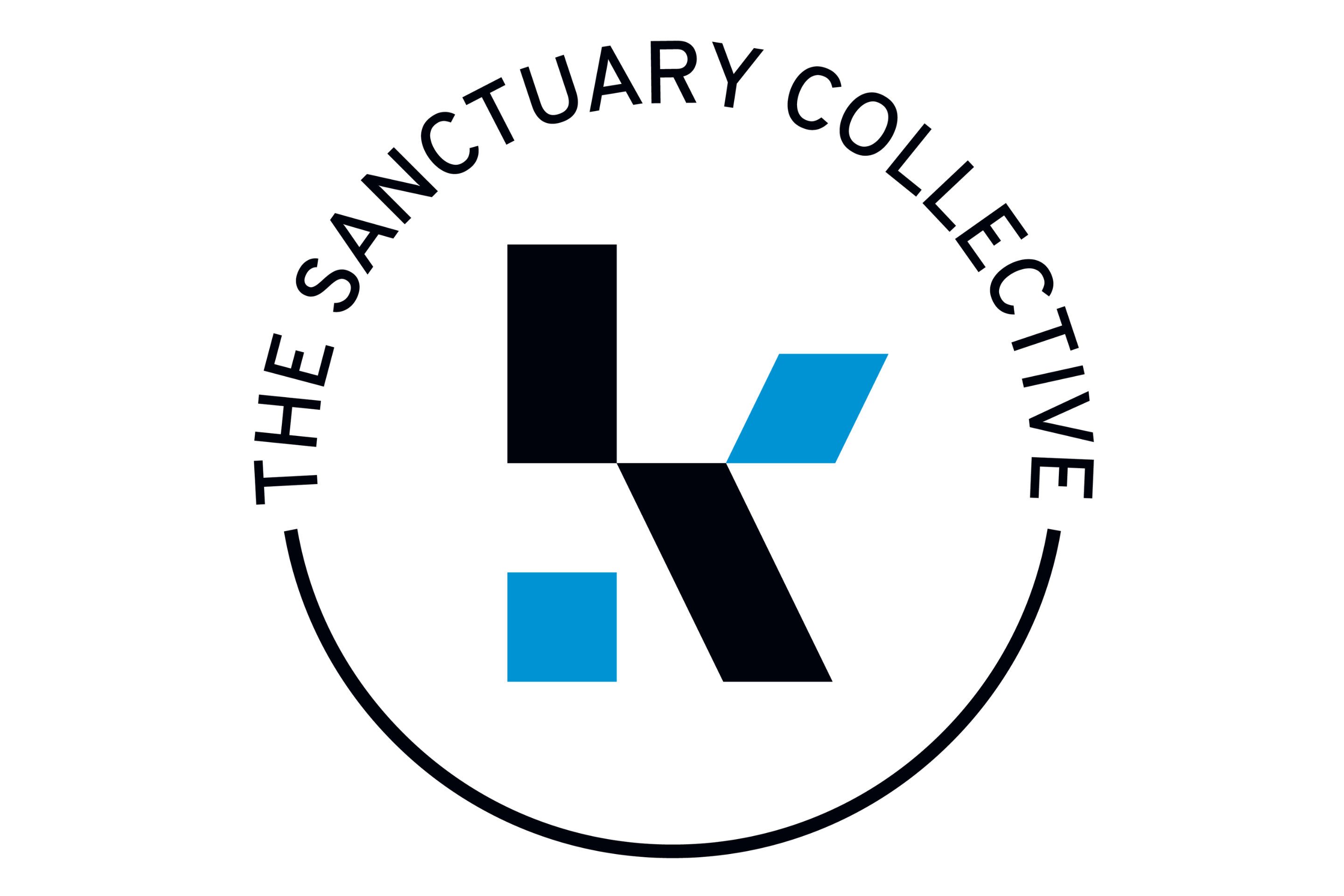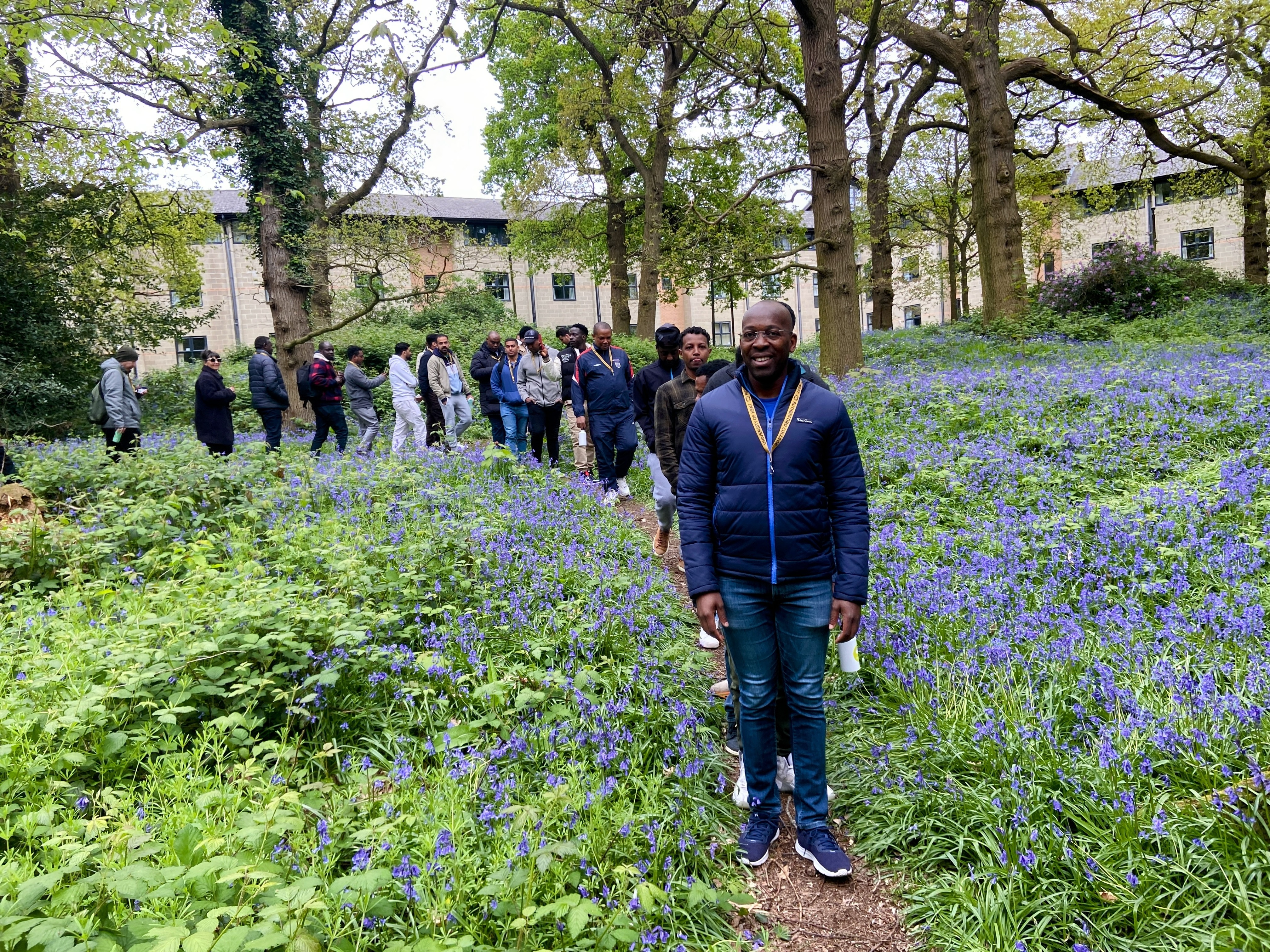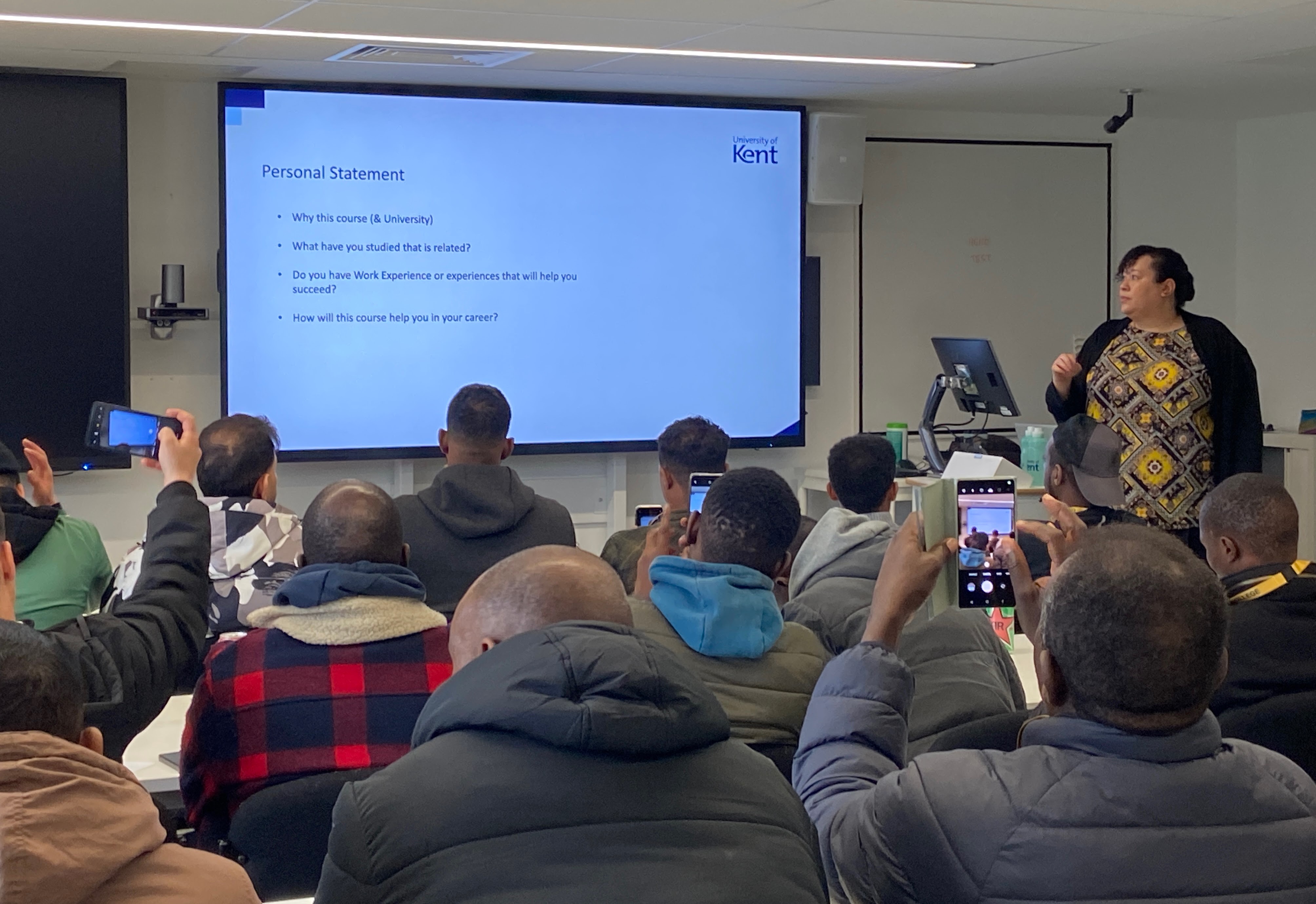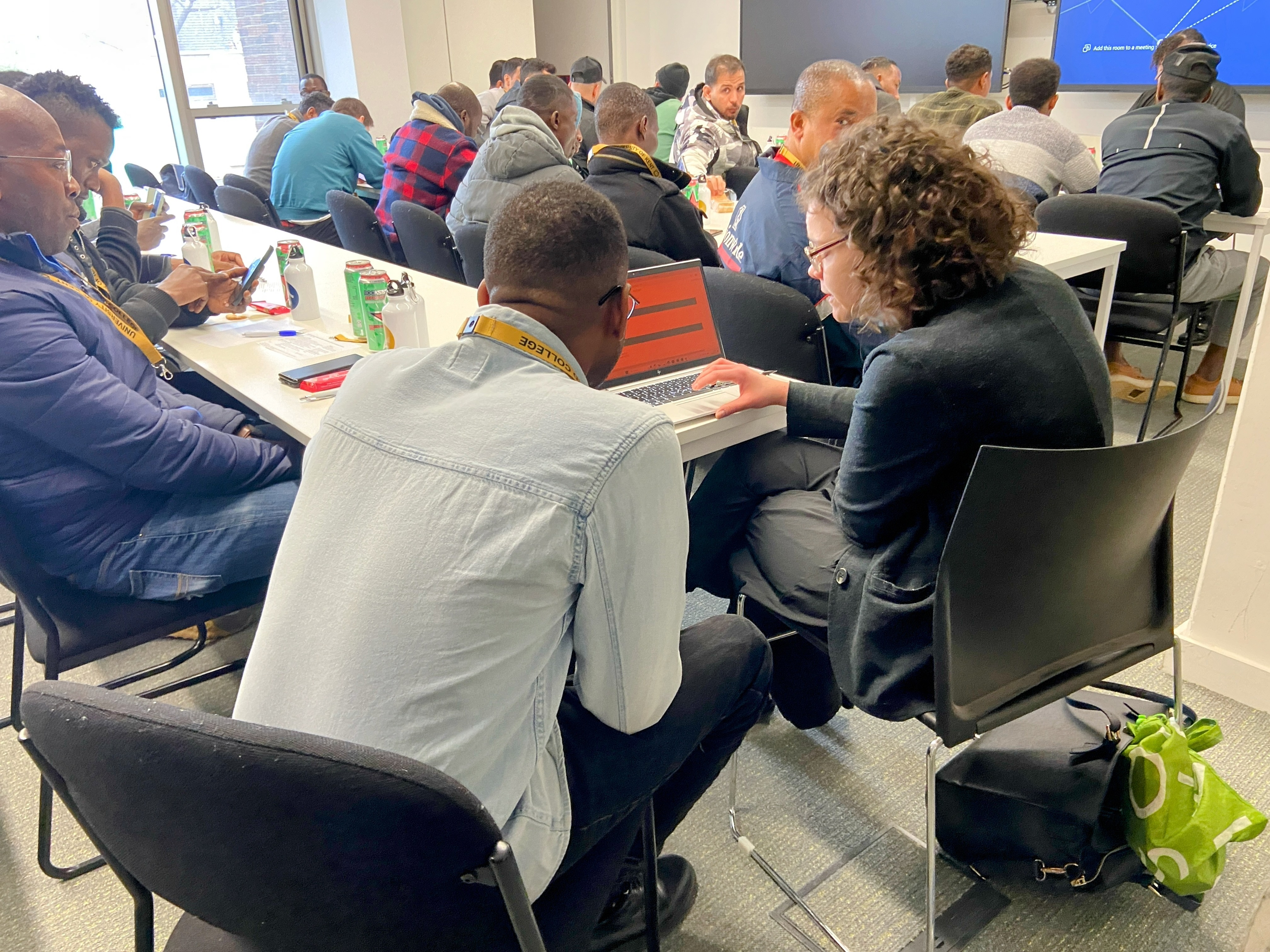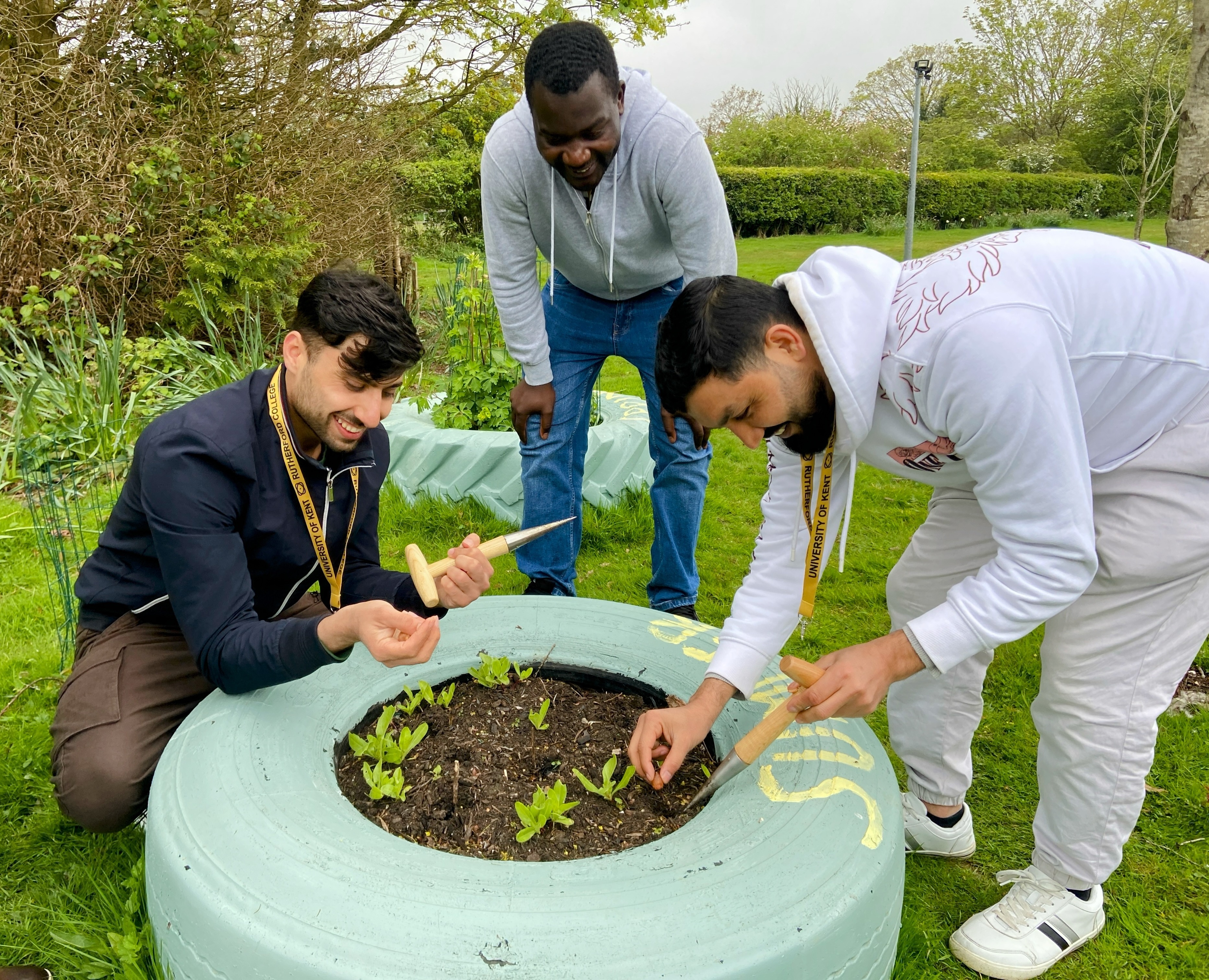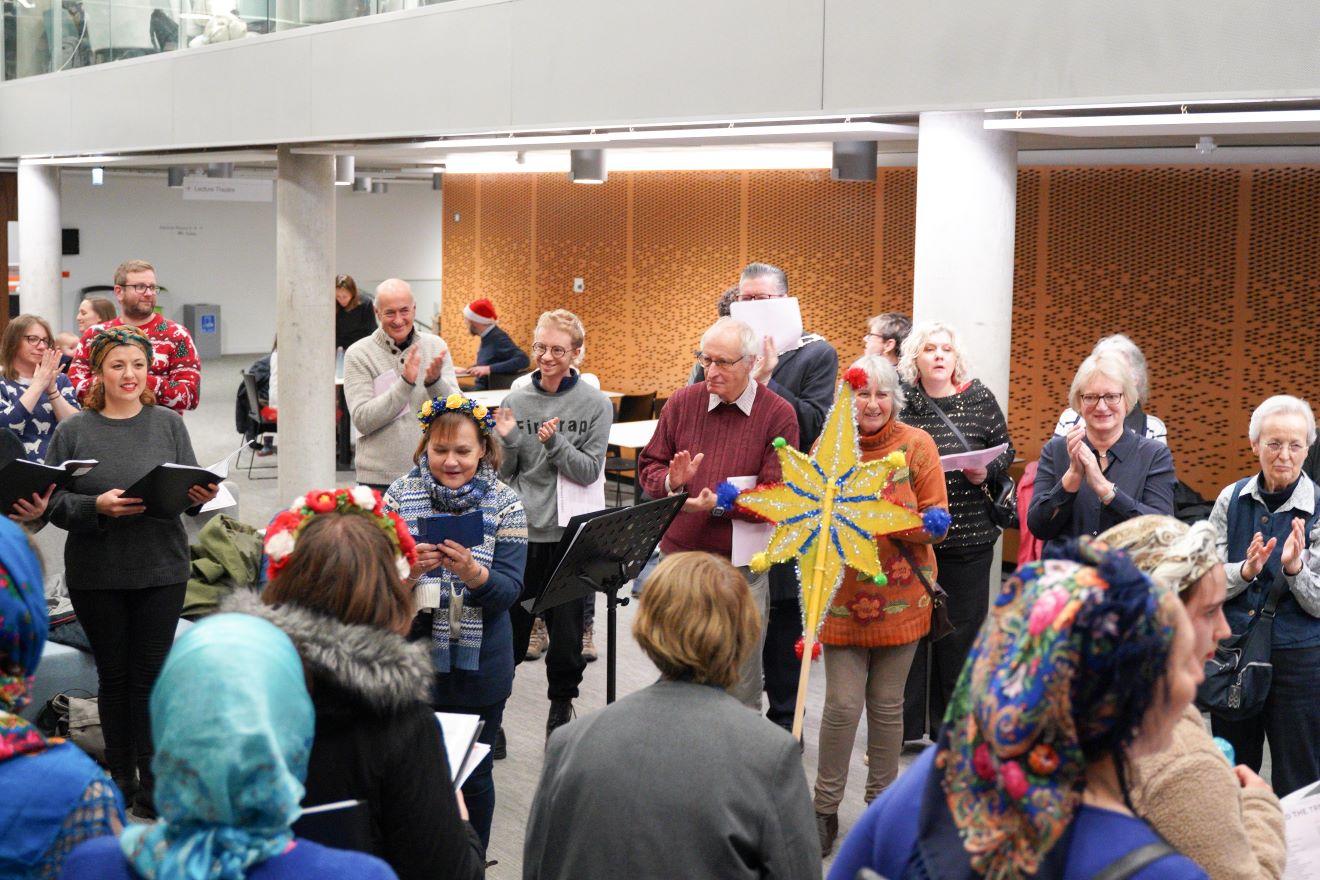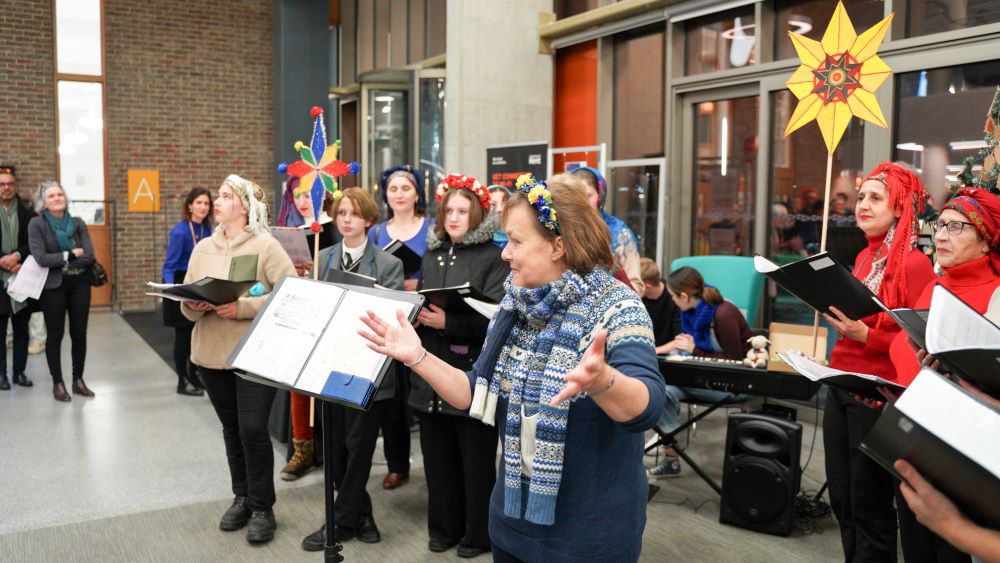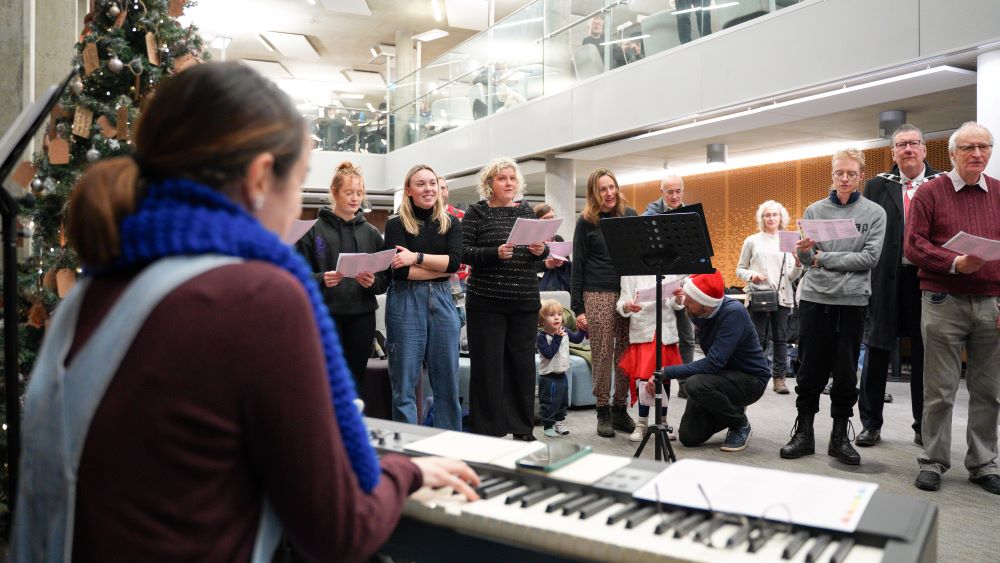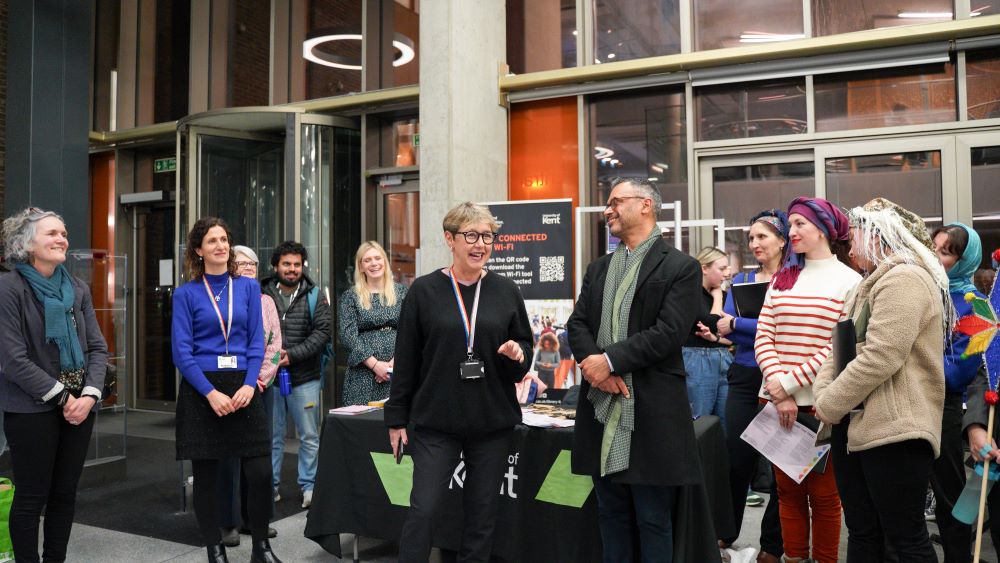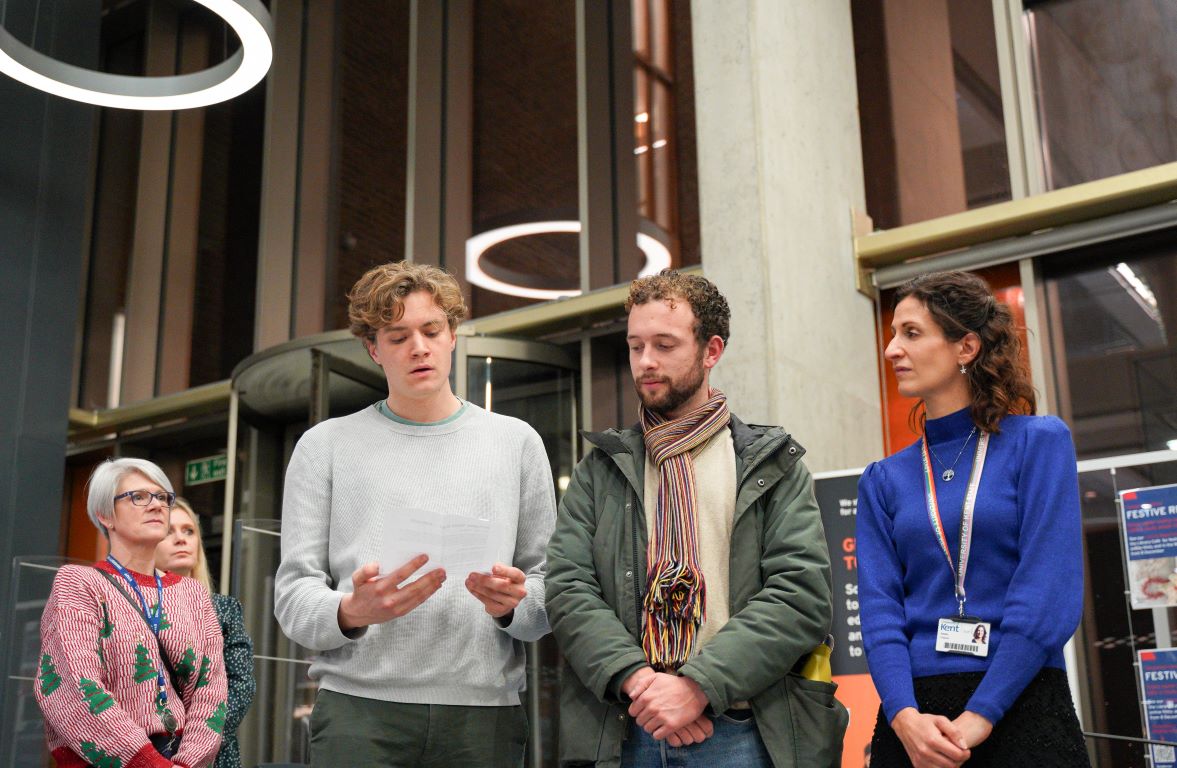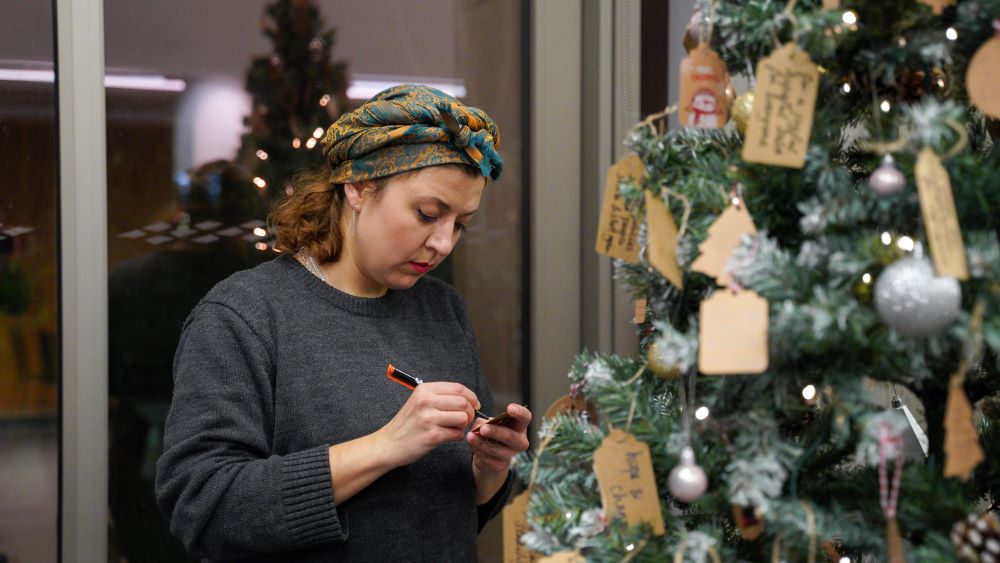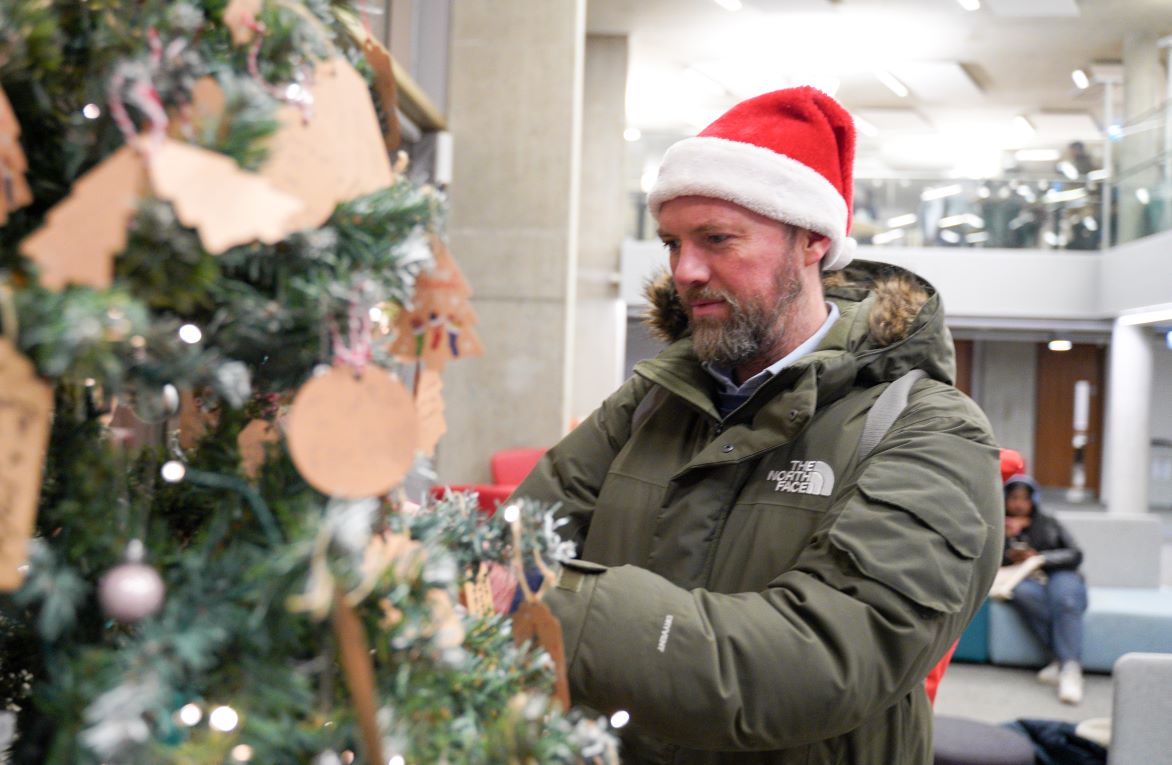This Thursday 13 June, a new staff group called The Sanctuary Collective will launch – a way for us to do something helpful and productive for asylum seekers and refugees in our work time using a range of skills and interests that might not be part of our current roles.
One of the first initiatives will be a men’s clothing drive – encouraging staff, students, and friends to donate good quality men’s clothes for asylum seekers and refugees in our community.
What clothing can I give and how?
We’re looking for men’s clothes because in July we’re hosting a group of residents from Napier Barracks in Folkestone, many of whom arrived in the UK recently with just the clothes on their backs. As we are providing sporting activities on campus as part of an ‘Exploring Higher Education’ day, it would be great to be able to offer changes of clothes to participants (particularly sporty gear – t shirts, shorts, tracksuits, sweatshirts, trainers, socks).
Bring clean, useable men’s or unisex clothing to the Sanctuary Collective launch in Rutherford Lounge at 2pm on Thursday 13th June, or bring to Rutherford Annexe foyer (low building next to Rutherford College) whenever suits you Monday-Friday between 9-5pm – any questions, message Natalia on n.crisanti@kent.ac.uk
Why should I join the Sanctuary Collective?
Be a part of the University’s civic mission in your paid Kent volunteering hours, and spend some time in your working life doing something that has a real practical impact on a part of our society that’s often overlooked or even stigmatised.
Grow your transferable skills and contacts as you meet people from across the university and work together on projects that give you another perspective, as you share and gain knowledge with colleagues about civic mission, philanthropy, events and communications.
In agreement with your line manager, you can use your staff volunteering hours to do this meaningful socially useful work as part of the 25 hours’ of volunteering time you get per year (pro-rata for part-time staff.) More information on volunteering and how to record your volunteering hours can be found on the People and Culture SharePoint site.
I’m interested – what next?
Join our sympa mailing list via our online form to be invited to meetings and activities, and participate in our first in-person launch meeting in Refugee Week:
The Sanctuary Collective Launch, 2-3pm on Thursday 13 June, in Rutherford Lounge – an informal meeting to see who we are and discuss ideas about what we can do to shape and mobilise the collective. By signing up via the form, you will be invited to this and future events.
Look forward to seeing you there!
